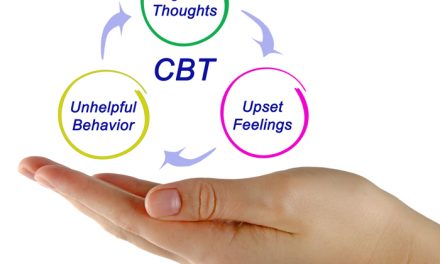There is a Calvin and Hobbes comic strip in which the boy (Calvin) and his stuffed tiger (Hobbes) are discussing monsters under the bed. Calvin’s mom has suggested an “experiment.”
“She says the monsters under my bed might need me to think about them to exist. Her theory is that if I just don’t think about them, they’ll go away.”
Hobbes replies, “Of course, that idea of being dragged under the bed and devoured by monsters has a way of gripping the mind.”
It is a good point—and Calvin has another thought about this experiment his mom has proposed.
“And it’s not like Mom and Dad go away when I stop thinking about them.”
We can neither confirm nor deny the existence of monsters under Calvin’s bed, but we can confirm that the risk of relapse for a person in recovery from a substance use disorder is, in fact, real. That is true no matter how hard you might try not to think about it.
So while attempting to ignore the risk of relapse is not a sustainable strategy (relapse risk is like Calvin’s parents—always real), there are some things you can do to make relapse less likely.
How to Keep Cravings Curtailed
When you are in recovery, two opposite impulses can battle one another inside your body and brain. On the one hand, you want to maintain your hard-won sobriety. You know that so many areas of your life are improved by staying sober.
At the same time, however, your body and brain might be really craving drugs or alcohol. Perhaps those cravings pop up in response to a particular stressor or because you have run into someone who you used to drink or use drugs with. Maybe the cravings arrive for seemingly no reason at all. Either way, your goal is to resist those cravings so that you can maintain your sobriety.
Create A Cravings Response Plan
Having a “cravings response plan” is one way to make it easier to resist. Your plan will be specific to you, but it might include:
- Knowing what activities or hobbies are likely to distract you from your cravings
- Identifying some breathing and/or mediation techniques that can address cravings and the anxiety that often accompanies them
- Knowing who you can call when the temptation seems irresistible—a sponsor, a close friend, a family member
- Having a favorite spot to visit—one that is free of drugs or alcohol—when cravings arise to wait them out
Keeping your plan in mind makes it less likely that you will panic when a craving arises. Being able to work your way through your anti-cravings checklist can be quite helpful.
Five Areas of Focus
It is good to have a set of rapid response ideas for dealing with cravings—but it is also helpful (perhaps even more helpful in the long run) to focus on healthy choices in several key areas that can help keep cravings from arising in the first place. Those areas include:
- Your physical health: Regular exercise can provide a firmer foundation for your recovery.
- Your mental health: Mental well-being and sobriety are intertwined, so seeking help for mental health disorders is essential to resisting relapse.
- Your sleeping habits: Quality sleep supports both your physical and mental health—which in turn support your sobriety.
- Your eating habits: Eating well is good for your mental and physical health. Poor nutritional choices—like consuming too much sugar, for example—can upend your recovery.
- Your relationships: Remember to surround yourself with people who support your sobriety.
What If Relapse Reaches Out and Grabs You?
What if, despite being diligent about all of the things we have suggested above, you still suffer a relapse? It can feel as though those mysterious monsters who may or may not be under Calvin’s bed have gotten their hooks in you. It might seem as though lasting sobriety is simply unattainable.
But a relapse is not the end of your recovery story. The key is to get yourself back into treatment to reclaim your sobriety and restart your recovery. It might seem monstrously difficult, but you can do it.
Don’t Try to Ignore a Substance Use Disorder
When you are struggling with drugs or alcohol, it can be mighty tempting to try to convince yourself—and others—that everything is just fine. But a substance use disorder will eventually disrupt your entire life. That is why the best time to get help for a substance use disorder is always right now.
At The Aviary Recovery Center, near St. Louis, MO, we offer our experience, expertise, empathy, and evidence-based practices to help you get sober—and stay sober. You can count on us to be the Hobbes to your Calvin—supporting you through thick and thin as you work to reclaim your sobriety and your life.










